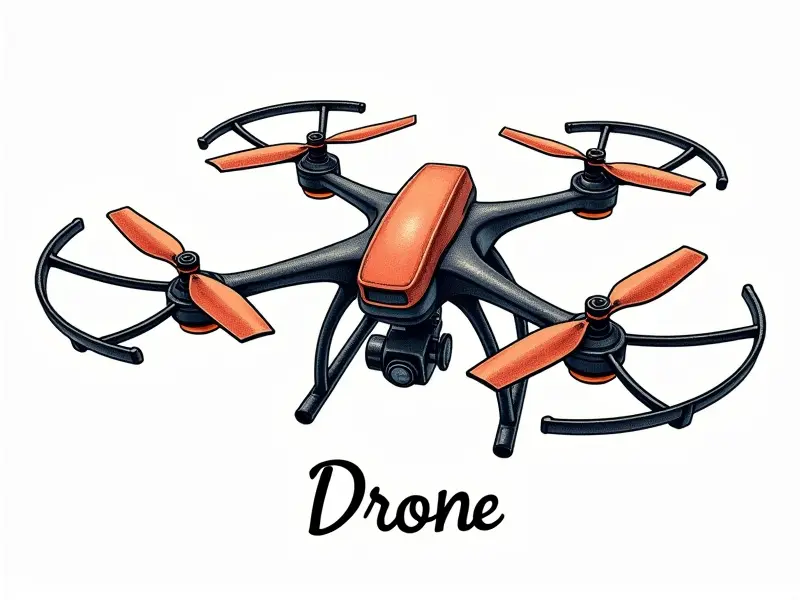RC helicopter flying experience?

Mastering RC Helicopter Flight Basics
Flying an RC (remote-controlled) helicopter is a thrilling and rewarding hobby that requires patience, practice, and dedication. The basics of mastering this skill involve understanding the mechanics and control systems of your RC helicopter.
The first step in learning to fly an RC helicopter is familiarizing yourself with its components such as the rotor blades, tail rotor, servos, and receiver. Each part plays a crucial role in the flight dynamics of your aircraft. Understanding how each component works will help you troubleshoot issues and optimize performance during flights.
Next, it's essential to learn about the different control inputs used when flying an RC helicopter. These include collective pitch (which controls lift), cyclic pitch (for controlling forward/backward and left/right movements), throttle, and tail rotor for yaw control. Familiarizing yourself with these controls will help you gain confidence in handling your aircraft.
Top Tips for Flying RC Helicopters
Flying an RC helicopter can be challenging at first, but there are several tips that can make the learning process smoother and more enjoyable:
- Safety First: Always conduct thorough pre-flight checks to ensure your RC helicopter is in good condition before taking off.
- Fly with a Buddy System: Having an experienced pilot nearby can provide valuable guidance and feedback, especially during the initial stages of learning.
- Practice Indoors First: Starting indoors allows you to practice basic maneuvers in a controlled environment without worrying about wind or other external factors.
- Start Slowly: Begin with simple maneuvers like hovering, then gradually move on to more complex ones as your skills improve.
Beginner's Guide to RC Helicopter Flying
For beginners, the transition from ground-based hobbies to aerial operations can seem daunting. However, by following these steps, you'll be well on your way to becoming a proficient RC helicopter pilot:
- Selecting Your First Model: Choose an entry-level model with good reviews and support materials available online.
- Understanding the Controls: Invest time in understanding how each control input affects the aircraft's movement. This foundational knowledge will be invaluable as you progress.
- Practicing Basic Maneuvers: Focus on mastering basic maneuvers like hovering, forward flight, and turning before attempting more advanced techniques.
Essential Skills for RC Helicopter Pilots
Beyond the basics, there are several essential skills that every RC helicopter pilot should develop to enhance their flying experience:
- Precision Control: The ability to make precise adjustments in real-time is crucial for executing complex maneuvers.
- Adapting to Wind Conditions: Different wind conditions require different techniques and strategies, so learning how to adapt your flying style accordingly is important.
- Maintaining Composure: Staying calm under pressure allows you to make better decisions during challenging flights or unexpected situations.
Secrets to Smooth RC Helicopter Control
To achieve smooth and controlled flight, here are some secrets that experienced pilots often share:
- Straight Line Training: Practicing straight line flights helps improve your ability to maintain consistent altitude and speed.
- Circular Flight Paths: Flying in circles can help you get used to the helicopter's dynamics and learn how to compensate for centrifugal forces.
- Sudden Movements Practice: Learning how to quickly react to sudden changes in direction or altitude is crucial for mastering advanced maneuvers.
Best Practices for RC Helicopter Piloting
Adhering to best practices ensures a safer and more enjoyable flying experience. Here are some key guidelines:
- Frequent Maintenance Checks: Regular maintenance keeps your helicopter in optimal condition, reducing the risk of mechanical issues during flights.
- Flight Logs: Keeping detailed logs of each flight can help you track progress and identify areas for improvement.
- Respect Local Regulations: Be aware of local airspace regulations and obtain any necessary permissions before flying in public spaces.
RC Helicopter Flying: A Beginner's Journey
The journey from a novice to an experienced RC helicopter pilot is both challenging and rewarding. Here’s what you can expect:
- Learning Curve: Initially, you'll face numerous challenges as you learn to master the controls.
- Growing Confidence: As your skills improve, so will your confidence in handling more complex maneuvers.
- Finding Your Style: Over time, you’ll develop a unique flying style that reflects your personality and preferences.
Maximizing Fun with RC Helicopter Flights
The ultimate goal of RC helicopter flying is to have fun while honing your skills. Here are some ways to enhance the enjoyment:
- Vary Your Locations: Experiment with different flying sites to add variety and challenge.
- Challenge Yourself: Set personal goals for mastering new techniques or maneuvers.
- Join a Community: Engage with other pilots through forums, clubs, or social media groups to share tips and experiences.
The Thrill of RC Helicopter Flight
Flying an RC helicopter offers unparalleled excitement and satisfaction. The ability to control an aircraft in the air is a testament to your skill and dedication:
- Dynamic Maneuvers: Executing dynamic maneuvers like loops, rolls, and flips can be incredibly exhilarating.
- Airborne Freedom: The freedom of flying an RC helicopter provides a sense of liberation that is hard to match with other hobbies.
Exploring the Joy of RC Helicopter Piloting
The joy of RC helicopter piloting lies in continuous learning and improvement. Each flight brings new opportunities for growth:
- Ongoing Learning: There's always something new to learn, whether it’s a technique or an aspect of maintenance.
- Bonding with Other Pilots: Building relationships within the RC helicopter community can enrich your flying experience.
RC Helicopter Flying: Safety First
Safety should always be the top priority when engaging in any activity involving remote-controlled aircraft. Here are some critical safety guidelines to follow:
- Pre-flight Checks: Always conduct a thorough inspection of your helicopter before each flight.
- Avoid Obstacles: Be vigilant about avoiding obstacles and other people during flights.
- Emergency Procedures: Familiarize yourself with emergency procedures such as forced landings or crash-landing techniques.
By prioritizing safety, you can ensure a long-lasting and enjoyable RC helicopter flying experience.

